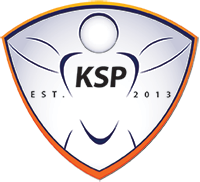The Value of Sleep
By Lukas Smith BS, CSCS
Often, coaches are asked by athlete’s and parents what is the best tool to recover from a workout or reduce the risk of injury? There are many modalities or products that claim to help athlete’s recover and, although some may actually have some benefit, these are not the first things that should be addressed when answering this question. One of the best ways to improve recovery is something very simple that we take for granted – sleep! When looking at training schedules of athlete’s, particularly college aged and lower, sleep cycles are typically sporadic due to packed schedules involving sport practice, school, homework, performance training, and social lives. Typically, what gets put to the side is quality sleep which, ironically, has the potential to negatively influence all of those aspects in an athlete’s life (Copenhaver 2017).
When looking at athlete recovery, there is an order to how we as professionals should address different factors. This will vary depending on who you encounter but, in general, the first two are sleep and nutrition (which will not be addressed here). These are two equally important factors in athlete recover and generally do not cost extra money like other tools such as massage guns or compression sleeves. Those type of recovery tool come later in the list after sleep cycles and nutrition have been ironed out. The third factor would be training volume and intensity which is determined by coaches in both sport and strength fields. This may be dependent on sleep and nutrition or the other way around.
 In general, scientific evidence states that athletes should be getting 8-10 hours of sleep per night on a regulated schedule, meaning a schedule spanning the same hours each night. Ex. 10pm-7am. When athletes get 7 hours of sleep or less a night, we start to see an increase in rates of injury risk and decrease in overall performance. A study in including middle and high school athletes found that athletes who slept less than 8 hours per night were 70% more likely to report an injury (Milewski et al 2014). Some performance measures that have been scientifically proven to increase with 8+ hours versus 7 hours of sleep or less per night are sprint performance, reaction time, accuracy, endurance performance, and rating of perceived exertion among others (Watson 2017). Rating of perceived exertion is basically how difficult you perceived something to be. So, with more sleep, an athlete may perceive an action easier than they would with less sleep.
In general, scientific evidence states that athletes should be getting 8-10 hours of sleep per night on a regulated schedule, meaning a schedule spanning the same hours each night. Ex. 10pm-7am. When athletes get 7 hours of sleep or less a night, we start to see an increase in rates of injury risk and decrease in overall performance. A study in including middle and high school athletes found that athletes who slept less than 8 hours per night were 70% more likely to report an injury (Milewski et al 2014). Some performance measures that have been scientifically proven to increase with 8+ hours versus 7 hours of sleep or less per night are sprint performance, reaction time, accuracy, endurance performance, and rating of perceived exertion among others (Watson 2017). Rating of perceived exertion is basically how difficult you perceived something to be. So, with more sleep, an athlete may perceive an action easier than they would with less sleep.
Let’s be real, changing a daily schedule may be very difficult, even impossible for some people with how packed family’s schedules are. However, there are still actions we can take to increase the value of sleep regardless of length. Firstly, limiting blue light exposure before bed. This means limiting screen use. Exposure to blue light may inhibit natural melatonin production (Watson 2017). Everyone, not just athletes should take 30-60 minutes of relaxation time before falling asleep. This would mean no blue light exposure and could include reading, deep breathing, etc. Another key factor in sleep quality is properly managing mental health of athletes. Athletes are typically under large amounts of stress which can contribute to poor sleep quality and duration.
Sleep is one of, if not the, most important factor in an athlete’s ability to recover from sport practice, competition, and workout sessions. There are other contributing factors such as nutrition and training load which are equally as important. Once these three are addressed then the conversation about additional tools can be had. Sleep quality and length can have huge implications on performance on and off the field in daily life.
References
Copenhaver, E., & Diamond, A. (2017, March 13). The Value of Sleep on Athletic Performance, Injury, and Recovery in the Young Athlete. Retrieved August 15, 2020, from https://www.healio.com/pediatrics/journals/pedann/2017-3-46-3/{3bacbe58-eeb0- 45b2-bd94-54a6f8dffaa3}/the-value-of-sleep-on-athletic-performance-injury-and-recovery-in the-young-athlete
Milewski, Matthew D. MD*; Skaggs, David L. MD, MMM†; Bishop, Gregory A. MS‡; Pace, J. Lee MD†; Ibrahim, David A. MD†; Wren, Tishya A.L. PhD†; Barzdukas, Audrius MEd‡ Chronic Lack of Sleep is Associated With Increased Sports Injuries in Adolescent Athletes, Journal of Pediatric Orthopaedics: March 2014 - Volume 34 - Issue 2 - p 129-133 doi: 10.1097/BPO.0000000000000151
Watson, Andrew M. MD, MS Sleep and Athletic Performance, Current Sports Medicine Reports: 11/12 2017 - Volume 16 - Issue 6 - p 413-418 doi: 10.1249/JSR.0000000000000418
